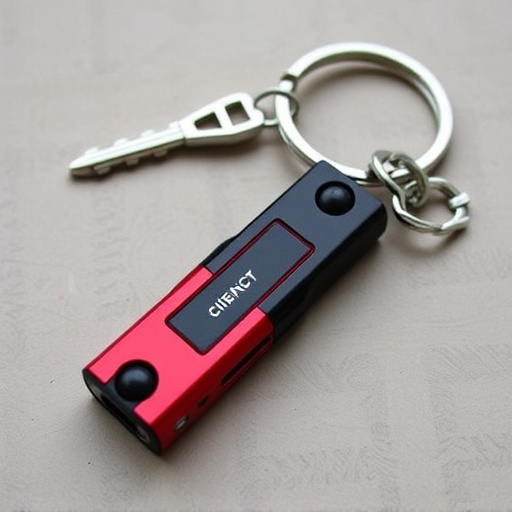Self-defense keychain laws vary significantly across the United States, with each state having its own regulations regarding blade length, locking mechanisms, age restrictions, and carrying locations. Understanding these laws is crucial for citizens to exercise their rights responsibly and legally, especially in light of "stand your ground" provisions and self-defense exemptions. Staying informed about Self-Defense Keychain Laws by State ensures individuals can make safe and legal decisions in potentially dangerous situations.
“Ensuring keychain safety and legal compliance is crucial, especially with the rise of self-defense devices. This comprehensive guide, ‘Keychain Safety Device Legal Requirements Check,’ delves into the intricate world of self-defense keychain laws across the US. We present a state-by-state analysis of these regulations, highlighting key considerations for both consumers and manufacturers. Understand the legal landscape, stay informed, and prioritize safety with our detailed overview of Self Defense Keychain Laws by State.”
- Understanding Self-Defense Keychain Laws: A Comprehensive Overview
- State-by-State Analysis: Exploring Legal Requirements
- Key Considerations for Compliance and Safety
- Navigating Legalities: Tips for Consumers and Manufacturers
Understanding Self-Defense Keychain Laws: A Comprehensive Overview
In the United States, self-defense keychain laws vary significantly from state to state, making it crucial for individuals to understand their rights and legal protections when carrying a keychain designed for personal safety. These laws dictate the circumstances under which a person can legally use a self-defense keychain, including the types of situations where it’s permissible as a deterrent or for protection against an attack. Understanding Self-Defense Keychain Laws by State is essential because it ensures that citizens are aware of their rights and can make informed decisions to protect themselves.
Each state has its own set of regulations covering self-defense devices, including keychains armed with sharp objects or pepper spray. Some states allow their use only in specific situations, such as when an individual feels threatened or is the victim of an attack, while others have more permissive laws that enable citizens to carry them for deterrence purposes. Knowing these Self-Defense Keychain Laws by State enables individuals to stay within legal boundaries and use their self-defense devices responsibly and appropriately.
State-by-State Analysis: Exploring Legal Requirements
In the United States, the legal landscape surrounding self-defense keychain devices varies significantly from state to state. Understanding the specific regulations is crucial for consumers looking to purchase and carry such devices for personal safety. A thorough examination of each state’s laws is essential to ensure compliance and avoid any potential legal repercussions.
For instance, some states have explicit prohibitions against certain types of self-defense keychains, focusing on restrictions related to blade length or specific mechanisms. Conversely, other states may have more lenient regulations, allowing a broader range of keychain devices for personal protection. This State-by-State Analysis aims to provide insights into the varying legal requirements, empowering individuals to make informed decisions when choosing a self-defense keychain and ensuring they remain within the boundaries of the law.
Key Considerations for Compliance and Safety
When navigating the legal requirements for a keychain safety device, understanding self-defense keychain laws by state is paramount. Each US state has its own set of regulations governing the design, sale, and possession of personal defense tools, with key considerations focusing on public safety and individual rights. These include restrictions on the type and functionality of self-defense keychains, age limitations for purchase, and places where they can be carried.
Compliance involves adhering to local statutes that dictate what constitutes a legal self-defense keychain. Features like blade length, locking mechanisms, and overall construction must meet specific standards to avoid prosecution. Additionally, knowledge of “stand your ground” laws and any exemptions related to self-defense is crucial for justifying the use of such devices in potential situations. Staying informed about these state-specific laws ensures not only legal compliance but also enhances personal safety.
Navigating Legalities: Tips for Consumers and Manufacturers
Navigating Legalities: Tips for Consumers and Manufacturers
In the United States, the legal landscape surrounding self-defense keychain devices varies significantly from state to state. Consumers should be aware that some states have specific regulations regarding the carry and use of such devices, while others may not have any restrictions at all. For instance, certain states allow for the open carry of self-defense keychains without a permit, whereas other states require permits or licenses. It’s crucial for consumers to understand the Self Defense Keychain Laws by State before purchasing or carrying a self-defense keychain to avoid legal repercussions.
Manufacturers also have a responsibility to ensure their products comply with local laws. This involves staying informed about changing regulations and adhering to any required safety standards or labeling guidelines. By understanding the legal requirements, both consumers and manufacturers can ensure they are acting within the bounds of the law while promoting personal safety.
When it comes to self-defense keychain laws, understanding your state’s specific requirements is paramount. This comprehensive guide has provided a detailed look at self-defense keychain legislation across various states, highlighting the diverse legal landscape. By considering key safety and compliance factors, consumers and manufacturers can ensure they stay within legal boundaries while prioritizing personal safety. Remember, staying informed about Self Defense Keychain Laws by State is crucial for responsible ownership and peace of mind.
